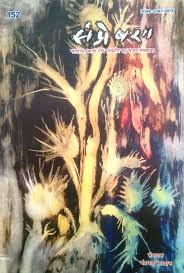Narrating the Nation: Memory, Trauma, and Resistance in Arundhati Roy’s The Ministry of Utmost Happiness and Amitav Ghosh’s The Shadow Lines
DOI:
https://doi.org/10.8476/sampreshan.v14i3.289Abstract
This paper examines the themes of memory, trauma, and resistance in contemporary Indian literature by focusing on two key works: Arundhati Roy's The Ministry of Utmost Happiness and Amitav Ghosh's The Shadow Lines. Both authors use fragmented narratives and non-linear timelines to explore collective and personal trauma rooted in India’s socio-political history. The paper analyzes how these works represent violence, partition, and displacement, and how memory becomes a site of resistance against hegemonic national narratives. Drawing on theories of trauma and postcolonial studies, the paper contends that Roy and Ghosh provide complex reflections on the postcolonial Indian identity, memory, and history.



